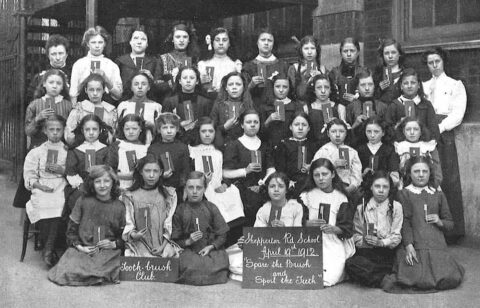The British Dental Association has applauded the rollout of supervised brushing in early years settings in England. The policy, launching today as part of a partnership between the UK government and Colgate-Palmolive, will target hundreds of thousands of 3–5-year-olds in the most deprived areas from April.
In a break from the recently launched policy of 700,000 urgent dental appointments – which is funded by recycling the existing dental budget – the BDA understands schemes will be funded directly via the public health grant.
The professional body has expressed relief that the schemes are receiving a dedicated revenue stream, that is not conditional on the crisis in NHS dentistry persisting. Earlier this year the BDA had pointed to new research, that indicated that funding remained the number one barrier to uptake, with 4 in 10 English councils not currently able to afford to implement them.
The BDA has been a long-term champion of this policy, that official modelling suggests will pay for itself through reduced treatment need. While there has been a postcode lottery of provision in England, dedicated national programmes have been running in Scotland since 2006 and in Wales since 2009, elements of which have been exported worldwide.
The fundamentals of supervised brushing programmes were developed by pioneering dentists working in London and the East of England in the late Victorian Era. [1]
The BDA says it reflects the attitude to oral health among successive governments that it has taken this long to reach a national rollout. It says that having made this important first step the new administration has a responsibility to go further and faster, both on restoring access to services and on prevention, particularly through mandatory action on the food industry on marketing, labelling and reformulation of food and drink.
The BDA also welcomed the Government’s decision to press ahead with the expansion of community water fluoridation across the North-East of England.
BDA Chair Eddie Crouch said: “It’s rare to find something to smile about in dentistry these days. But supervised tooth brushing is tried and tested policy that will save children from pain and our NHS a fortune. The only concern is why it’s taken a century to get here. Ministers need to go further and faster.”
Reference
[1] Dentist Richard Denison Pedley, an early pioneer in dental hygiene, wrote a report on the “Teeth of Pauper Children” for the British Journal of Dental Science in 1893, becoming one of the first advocates for supervised brushing.
The report made clear the effect of poor dental health on the children’s ability to chew, and the importance of making sure that the same care is given to the first teeth as the permanent ones. They recommend appointing a qualified Dental Surgeon to every school, so that children’s teeth would be inspected regularly and preventative dentistry would save pain and the expense of extraction in the long term.
Pedley felt that the most essential part of a child’s education was the knowledge of its own body and how to treat it well. He wrote that the ‘tooth-brush drill’ was as needful as any other gymnastic exercise.
This image depicts the work of dentist Charles E Wallis, who was called on to examine and report on children’s teeth with a view to organising a school dental service.
Wallis was convinced that instruction in the hygiene of teeth should be given to all children and their parents. He introduced the concept of toothbrush clubs to a number of days schools in 1909 in London. The cooperation of head and assistant teachers was essential to the success of these clubs. Every 4 weeks the children had to bring their toothbrushes into school for inspection. They were instructed that after use they were to be well rinsed and then put outside to dry. The brushes were bought in bulk to reduce costs and were sold for 2 ½ d (1p). The children paid for their brushes in instalments of 1 ¼ – 1/12 d per week.
















